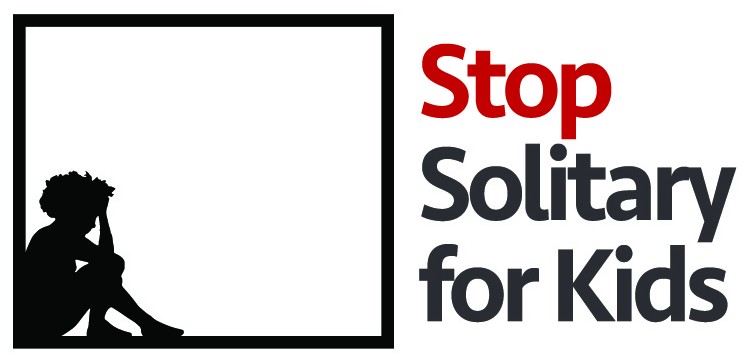see list of documents below
Click here for information on specific countries
UNITED NATIONS URGES U.S. TO ACT
Despite international pressure, the United States is the only United Nations Member State that has not ratified the CRC. A 2014 report by the United Nation’s Committee Against Torture specifically called on the U.S. to “prohibit any use of solitary confinement against juveniles.” In his most updated March 2015 report, Special Rapporteur Méndez describes the continued use of solitary confinement on children in the United States, which he defines as a form of torture.
INTERNATIONAL LAW AND SOLITARY
For decades, the United Nations has been a leading international voice on the harms of solitary confinement for children. In 1990, the U.N. General Assembly adopted Rules for the Protection of Juveniles Deprived of Their Liberty. The rules prohibited “disciplinary measures constituting cruel, inhuman or degrading treatment . . . , including . . . solitary confinement or any other punishment that may compromise the physical or mental health of the juvenile.”
The Convention on the Rights of the Child is an international treaty that recognizes the human rights of children, defined as persons up to the age of 18 years. The Convention establishes in international law that states must ensure that all children benefit from special protection measures and assistance. In 2007, the U.N. Committee on the Rights of the Child clearly stated that solitary confinement of children was “strictly forbidden” by article 37 of the Convention on the Rights of the Child (CRC). Article 37 prohibits “torture or other cruel, inhuman or degrading treatment or punishment” of children.
In December, 2015, the United Nations General Assembly formally adopted the Nelson Mandela Rules, the revised U.N. Standard Minimum Rules for the Treatment of Prisoners, or SMRs. The Mandela Rules “represent a universally accepted minimum standard for the treatment of prisoners, conditions of detention and prison management, and offer essential practical guidance to prison administrations.” For example, the rules provide that solitary confinement “shall be used only in exceptional cases as a last resort for as short a time as possible and subject to independent review.” The revised Rules also reiterate that solitary confinement should be prohibited for children “as referred to in other United Nations standards.” Mandela Rules, Rule 45.
UNITED NATIONS SPECIAL RAPPORTEUR & RECENT REPORTS
In 2011, the U.N. Special Rapporteur on Torture Juan Méndez presented his report on solitary confinement to the U.N. General Assembly. The Rapporteur found that any period of solitary confinement for juveniles constitutes torture or cruel, inhuman, and degrading treatment and should be prohibited.
On March 12, 2013, Special Rapporteur Méndez appeared as an independent expert in the first ever hearing on Solitary Confinement in the Americas during the 147thsession of the Inter-American Commission on Human Rights (IACHR). The IACHR endorsed his recommendations in a press release urging member states to comply with the recommendations, including banning solitary confinement for juveniles.
In February 2014, the Special Rapporteur attended and submitted a written statement for a Congressional hearing on solitary confinement: the Second Congressional Hearing on Solitary Confinement; Reassessing Solitary Confinement II: The Human Rights, Fiscal, and Public Safety Consequences.
NEW SPECIAL RAPPORTEUR
On September 30, 2016, Nils Melzer was appointed by the UN Human Rights Council as the next UN Special Rapporteur on Torture and Other Cruel, Inhuman and Degrading Treatment or Punishment. He will take over from Juan Méndez on November 1, 2016. Read a two-part interview with Rapporteur Méndez reflecting on progress made during his six year tenure and his insight about the future of solitary confinement reform: Part 1 and Part 2. In September, 2016 the U.N. published a report, entitled Seeing Into Solitary: A Review of the Laws and Policies of Certain Nations Regarding Solitary Confinement of Detainees, documenting the state of laws on solitary confinement around the world.
UNITED NATIONS DOCUMENTS
- The ACLU has compiled a summary on international law and practice related to youth solitary confinement
- Convention on the Rights of the Child (1989)
- Rules for the Protection of Juveniles Deprived of Their Liberty (1990)
- Interim report of Special Rapporteur Juan Méndez to the U.N. General Assembly (2011)
- Solitary Confinement in the Americas during the 147th session of the Inter-American Commission on Human
Rights (2013); testimony and video.
- U.N.’s Committee Against Torture: Concluding observations on the 3rd-5th periodic reports of the U.S (2014)
- U.N. Committee on the Rights of the Child: Children’s Rights in Juvenile Justice (2007)
- Nelson Mandela Rules (2015)
- Report of Special Rapporteur Juan Méndez to the U.N. General Assembly (2015)
- Seeing Into Solitary: A Review of Laws & Policies of Certain Nations Regarding Solitary Confinement of Detainees (2016)
The ACLU has compiled a summary on international law and practice related to youth solitary confinement.
